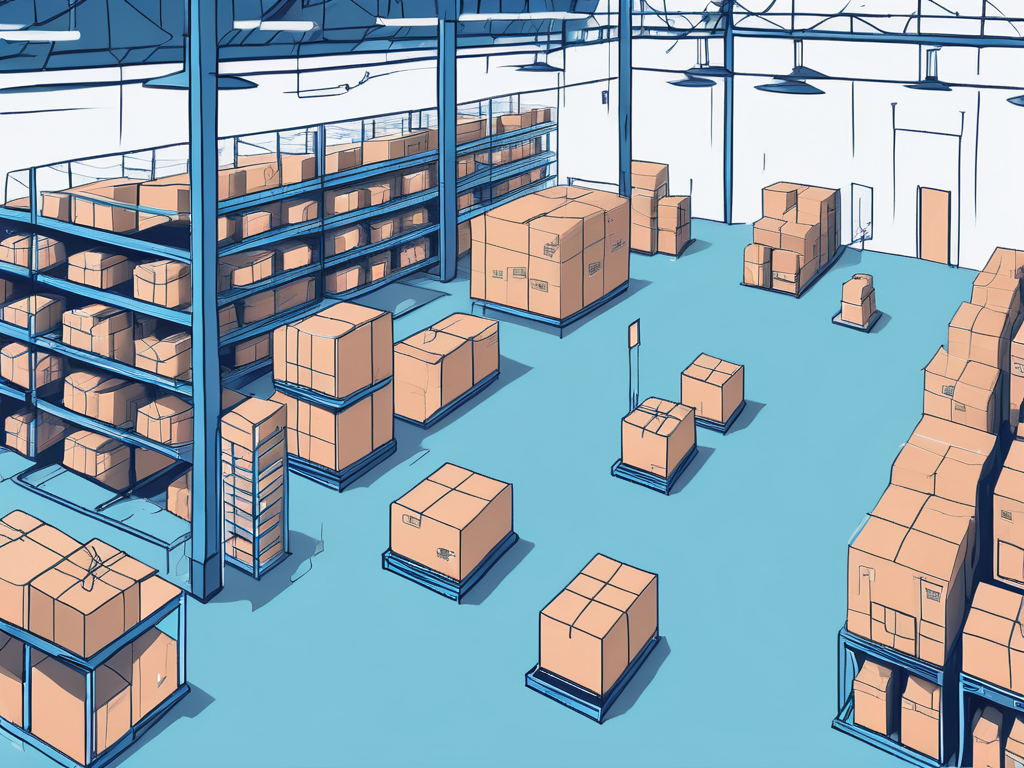
Automation is revolutionizing the way ecommerce businesses operate. As technology continues to evolve, businesses are increasingly adopting automation to streamline processes, enhance customer experience, and stay ahead of the competition. In this article, we will explore the various aspects of automation in ecommerce and discuss its potential impact and future developments.
Understanding Automation in Ecommerce
Ecommerce automation refers to the use of technology to automate repetitive tasks and streamline business operations. It encompasses a wide range of processes, including inventory management, order fulfillment, customer service, and marketing. By automating these tasks, businesses can save time, reduce errors, and improve overall efficiency.
Automation in ecommerce is not just about saving time and reducing errors; it also plays a crucial role in enhancing the customer experience. By automating processes such as personalized product recommendations based on browsing history or order tracking notifications, businesses can create a more tailored and engaging shopping experience for their customers.
Defining Ecommerce Automation
Ecommerce automation involves implementing software and systems that can perform tasks without human intervention. This can include tasks such as automatically updating inventory levels, generating personalized email campaigns, or even managing customer service interactions through chatbots. The key objective of automation is to eliminate manual effort and free up resources to focus on strategic initiatives.
Furthermore, automation in ecommerce extends beyond just operational efficiency. It also enables businesses to gather valuable data insights that can be used to optimize processes, identify trends, and make data-driven decisions. By leveraging automation tools for data analysis and reporting, businesses can gain a deeper understanding of their customers and market trends, leading to more informed business strategies.
The Role of Automation in Ecommerce Today
In the fast-paced world of ecommerce, automation plays a vital role in enabling businesses to meet customer demands efficiently. With the rise of online shopping, ecommerce businesses face increased competition and the need to provide seamless experiences. Automation helps businesses scale their operations and deliver consistent service, even during peak periods.
Moreover, automation in ecommerce is not just a trend but a necessity for staying competitive in the digital landscape. As consumer expectations continue to evolve, businesses must leverage automation technologies to stay agile and responsive to market changes. By embracing automation, ecommerce businesses can stay ahead of the curve and adapt to the dynamic nature of online retail.
The Advancements in Ecommerce Automation
Advancements in technology have paved the way for more sophisticated automation solutions in ecommerce. Two key technologies driving this progress are Artificial Intelligence (AI) and Machine Learning (ML).
AI and ML algorithms enable ecommerce businesses to make data-driven decisions and personalize customer experiences. These technologies can analyze vast amounts of data, such as customer behavior, preferences, and buying patterns, to provide targeted product recommendations, optimize pricing strategies, and improve overall customer satisfaction.
One of the most exciting developments in ecommerce automation is the use of AI-powered visual search. This technology allows customers to search for products using images rather than text. By analyzing the visual features of an image, AI algorithms can match it with similar products in the ecommerce store, enhancing the search experience and increasing the likelihood of a purchase.
Chatbots and Customer Service Automation
Chatbots have become increasingly popular in ecommerce for providing instant customer support. These automated systems use natural language processing to understand customer queries and provide relevant information or assistance. By using chatbots, businesses can resolve customer issues promptly, leading to increased customer satisfaction and reduced support costs.
Another area where AI and ML are making a significant impact is in fraud detection and prevention in ecommerce. By analyzing patterns in transaction data and user behavior, these technologies can identify potentially fraudulent activities in real-time, helping ecommerce businesses protect themselves and their customers from cyber threats.
The Impact of Automation on Ecommerce Operations
Automation has the potential to revolutionize ecommerce operations by optimizing processes and enhancing overall efficiency. Listen to our podcast to learn more on how Parabola can help you automate your business.
With the rapid advancement of technology, automation is becoming increasingly prevalent in the ecommerce industry. From utilizing artificial intelligence to automate customer service interactions to implementing machine learning algorithms for predictive analytics, businesses are leveraging automation to stay competitive in the digital landscape.
Streamlining Business Processes
Automation streamlines various aspects of ecommerce, such as inventory management, order processing, and shipping. By automating these processes, businesses can reduce errors, eliminate bottlenecks, and ensure timely delivery, ultimately improving operational efficiency.
Furthermore, automation in ecommerce operations extends beyond the backend processes to include customer-facing activities. Chatbots, for example, are being used to automate customer inquiries and provide real-time assistance, enhancing the overall shopping experience for consumers.
Enhancing Customer Experience
Automation plays a crucial role in enhancing customer experience by enabling businesses to personalize interactions and offer customized recommendations. By leveraging automation tools, ecommerce businesses can provide tailored product suggestions, personalized email campaigns, and targeted advertisements, leading to improved customer engagement and loyalty.
Moreover, automation in ecommerce not only enhances customer experience but also contributes to operational cost savings. By automating repetitive tasks, businesses can reallocate resources to focus on strategic initiatives, driving innovation and growth in the competitive ecommerce landscape.
Predicting the Future of Ecommerce Automation
The future of ecommerce automation holds promising prospects as technology continues to evolve. Several emerging automation technologies are poised to redefine the ecommerce landscape.
As we delve deeper into the realm of ecommerce automation, it becomes evident that the fusion of artificial intelligence and machine learning will play a pivotal role in shaping the future landscape. These technologies will not only streamline processes but also enhance personalization, providing customers with tailored shopping experiences that cater to their preferences and behaviors.
Emerging Automation Technologies
Technologies such as Robotic Process Automation (RPA), Internet of Things (IoT), and Augmented Reality (AR) are paving the way for new opportunities in ecommerce automation. RPA can automate mundane tasks, while IoT enables interconnected devices for seamless inventory management. AR can provide immersive shopping experiences, allowing customers to visualize products.
Furthermore, the integration of chatbots and virtual assistants powered by natural language processing will revolutionize customer service in ecommerce. These AI-driven solutions will offer real-time support, product recommendations, and personalized assistance, mimicking human interactions to a remarkable degree.
Potential Challenges and Solutions
While automation brings numerous benefits, it also presents challenges to businesses. One such challenge is the possible displacement of human jobs. However, by upskilling employees and redefining roles, businesses can ensure a smooth transition to the future of work. Additionally, investing in robust cybersecurity measures and data protection is crucial to safeguarding customer information in the automated ecosystem.
Moreover, the ethical implications of automation, such as algorithmic bias and data privacy concerns, must be carefully addressed to maintain trust and transparency with consumers. By prioritizing ethical considerations and implementing responsible automation practices, businesses can navigate the evolving landscape of ecommerce with integrity and foresight.
Preparing Your Business for Automation
As automation becomes increasingly prevalent, it is essential for ecommerce businesses to prepare and adapt.
Evaluating Your Automation Needs
Start by assessing your current business processes and identifying areas that can benefit from automation. Look for repetitive tasks, high volumes of data, or areas where manual errors are common. By understanding your automation needs, you can make informed decisions while implementing automation solutions.
Implementing Automation in Your Ecommerce Business
When implementing automation, it is crucial to choose the right tools and technologies that align with your business goals. Consider scalability, integrations with existing systems, and ease of use. Additionally, involve key stakeholders and provide training to ensure a successful transition to an automated workflow.
Conclusion
Automation is transforming the ecommerce industry, offering numerous benefits to businesses. By leveraging automation technologies and optimizing processes, ecommerce businesses can enhance operational efficiency, improve customer experience, and stay competitive in the dynamic market. As technology continues to advance, the future of automation in ecommerce holds exciting opportunities that will shape the industry in the years to come.
As you navigate the transformative landscape of ecommerce automation, staying informed and ahead of the curve is paramount. Izba Consulting is your strategic partner in this journey, dedicated to helping founders like you start, scale, and exit their businesses with a focus on enhancing supply chain operations for increased profitability and cash flow. Embrace the future with confidence by joining forces with a team that combines Fortune 500 and startup expertise to bring innovative solutions to your unique business challenges. Don’t miss out on valuable insights and strategies that can propel your business forward. Subscribe to our newsletter today and ensure you’re always equipped with the knowledge to thrive in the dynamic world of ecommerce.




